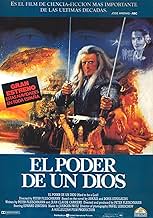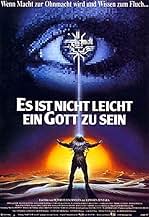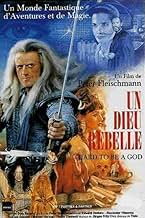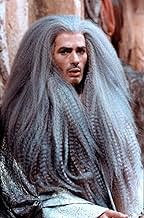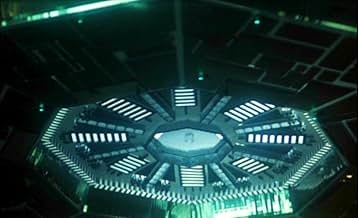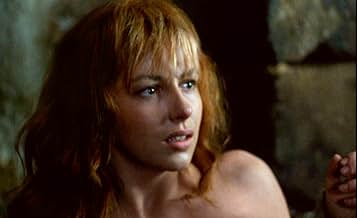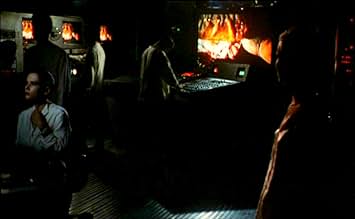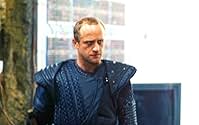Füge eine Handlung in deiner Sprache hinzuAnother planet in the period of medieval times. An employee of the institute of experimental history from Earth, who is send under the name of noble don Rumata of Estor as a spy with a missi... Alles lesenAnother planet in the period of medieval times. An employee of the institute of experimental history from Earth, who is send under the name of noble don Rumata of Estor as a spy with a mission to contact the local resident of the institute, arrives in the city of Arkanar. But the... Alles lesenAnother planet in the period of medieval times. An employee of the institute of experimental history from Earth, who is send under the name of noble don Rumata of Estor as a spy with a mission to contact the local resident of the institute, arrives in the city of Arkanar. But the resident perishes under an unlucky attempt to make a palace coup, and Rumata have to take... Alles lesen
- Auszeichnungen
- 4 Gewinne & 3 Nominierungen insgesamt
- Hauk
- (as Michail Glusski)
- Baron Pampa
- (as Elgudzha Burduli)
Empfohlene Bewertungen
For those unfamiliar with the novel or its adaptations, the story concerns a planet similar to Earth that is undergoing its own version of the middle-ages. A group of scientists from Earth are studying the planet. To do so, they are living among the people as if they were natives. The scientists are to remain objective, interacting enough with the King and his court to keep up appearances but not enough to upset the time period. When Don Reba, a rising lord, tries to seize power with the help of the church, one scientist finds it hard to remain objective.
The novel's two film adaptations take very different routes. Aleski German's 2013 adaptation is an art film very concerned with its ambiance. It places the viewer in an unknown world and forces him to decipher it, much like a scientist. This results in a unique, visually striking film but also an often inaccessible motion picture. On the other hand, director Peter Fleischmann's 1989 adaptation is a far more viewer friendly film. It sets up its story and characters in a traditional and easy to follow way. The viewer does not need to be familiar with the source novel to understand the film (something not always true of the Aleski German adaptation). The downside of this approach is that Fleischmann's film seems merely ordinary, unremarkable.
Fleischmann's adaptation follows the Strugatsky novel fairly closely. I don't remember the peasant revolt taking up so much space, and it certainly didn't play into the climax. I was disappointed by this ending because the scientist Rumata never loses himself in the violence the way he does in the novel. An optimism shines through the ending of Fleischmann's Hard to be a God that is absent from both the Strugatsky and Aleski German versions.
Another point of contention is that while the Aleski German adaptation seems timeless, Fleischmann's film shows its era. The desert look and stone walled castles remind one of other fantasy films from that decade (Krull; Hundra). The hero in his white wig calls to mind Connor MacLeod in the Scottish scenes from the first Highlander movie. Finally, the 1989 film has an ill-advised ending theme song (in English) whose chorus bears a passing resemblance to Foreigner's "I Want to Know What Love Is."
Nonetheless, the Peter Fleischmann film is a fair adaptation of the source novel. Fans of the book should be modestly satisfied. Finally,it should be noted that film director Werner Herzog appears at the beginning of the film playing an imprisoned scientist.
Wusstest du schon
- WissenswertesThe main requirement Strugatsky for the film was the presence of a Soviet director, preferably Alexei Herman, but the director was approved Fleischman. Because of its intractability and serious nature, the Strugatsky stopped monitoring the process of filming and, as a result, they did not like the resulting film.
- VerbindungenVersion of Es ist schwer, ein Gott zu sein (2013)
Top-Auswahl
- How long is Hard to Be a God?Powered by Alexa
Details
Zu dieser Seite beitragen


